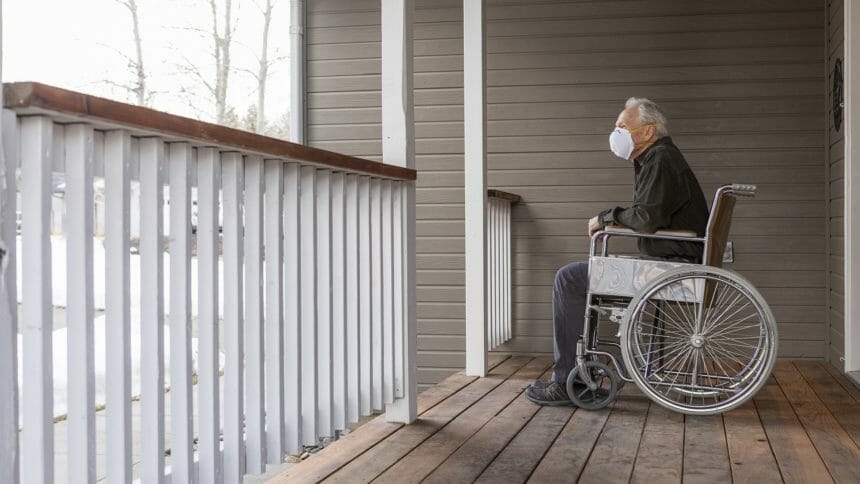
South Carolina released new guidance for limited outdoor visitation at assisted living communities and nursing homes on Tuesday, following criteria from the Centers for Disease Control and Prevention, the Centers for Medicare and Medicaid Services and the state’s own long-term care testing guidelines.
The guidance from the South Carolina Department of Health and Environmental Control allows visitation based on no cases among staff or residents within the past 14 days and the availability of adequate staffing and personal protective equipment. Assisted living communities can begin visitation before testing of staff and residents takes place, but testing must occur within 30 days of the issuance of the guidelines for outdoor testing at communities.
“Our first priority when developing these guidelines was to protect both the physical and mental health of our loved ones who call nursing homes and assisted living facilities their home,” said DHEC Joan Duwve, M.D. “As we are all too aware, these vulnerable individuals are among those at highest risk for developing life-threatening and life-taking complications form COVID-19.”
All residents and staff members will undergo COVID-19 testing, and all visitors must provide a negative COVID-19 PCR or antigen test result within the last five days or a positive antibody test result within the last 30 days for a one-hour visit; otherwise visits are limited to 15 minutes. Visitors will undergo screenings before each visit, and only two visitors will be permitted at one time. Visitors also must wear masks and socially distance from residents. It will be the responsibility of each community to decide how it is best able to implement the guidelines, Duwve said.
For those communities able to meet the criteria, physically distanced outdoor visitation will be allowed for a limited time period. DHEC noted that each community will need a “reasonable amount of time” to meet the criteria, meaning that outdoor visitation will not be immediately available. Families will be encouraged to coordinate directly with communities in determining when visitation will be permitted.
Temporary suspension of visitation at a community could be triggered by the presence of one or more positive cases at a community, and visitation could resume once CMS testing protocols are completed and if fewer than three total cases are identified — or if three or more cases are identified within a 14-day period.
Gov. Henry McMaster said at a news conference that he knows there is no way all risk can be eliminated but that it is time to reunite residents with their family members. Plans to release the guidelines in June were delayed due to the increasing rates of infections and hospitalizations in the state, he added.
The state Department of Aging created a working task force to monitor the process and provide additional suggestions on policies and procedures.
In other coronavirus-related news:
- Indiana has launched a COVID-19 dashboard to track COVID-19 cases and deaths at the state’s assisted living communities and nursing homes. The dashboard launch comes after various stakeholders asked the governor and state health leaders for transparency regarding data at long-term care facilities. The dashboard is updated weekly by the state health department.
- Florida Gov. Ron DeSantis announced Tuesday that he is ordering the reopening of assisted living communities and nursing homes after receiving recommendations from a state task force on reopening long-term care facilities. Families for Better Care Executive Director Brian Lee, a consumer advocate and former ombudsman, asked DeSantis to include molecular rapid testing in any reopening plan, which he described as a “crucial piece missing” from the Task Force on Safe and Limited Re-Opening of Long-Term Care Facilities’ recommendations. Lee said the right rapid testing minimizes the threat of the virus, providing a safer opening to families.
- The Pennsylvania Department of Health and Department of Human Services announced that all assisted living, personal care home and private intermediate care facilities have completed universal baseline COVID-19 testing of all residents and staff by the Aug. 31 deadline. The state’s Regional Response Health Collaborative Program helped facilities complete testing by providing clinical support, technical assistance and education.




